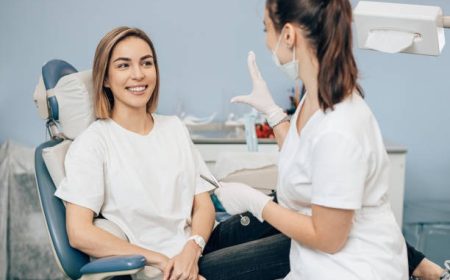When we’re gearing up for our pets to undergo surgery, whether it’s a routine procedure or something more serious, it’s crucial to ascertain that they’re in tip-top shape to handle the operation and the anesthesia. This brings us to whether lab checks before surgical procedures like spaying and neutering are essential. We often think of our furry friends as resilient creatures, but when it comes to medical interventions, ensuring they’re prepared for what lies on the operating table is key. So, let’s unpack the significance of preoperative lab checks and how they contribute to the well-being of our beloved pets.
Understanding Preoperative Lab Checks
Now, you might be wondering what a lab check entails. These are a series of tests run by the veterinarian to assess your pet’s overall health. This is the medical equivalent of peeking under the hood before a long car trip – you want to make sure everything is working properly.
Common tests include:
-
Bloodwork: To evaluate organ function, blood cell counts, and clotting ability.
-
Urinalysis: To check kidney function and look for signs of infection or disease.
-
Biochemistry Profile: To assess various enzymes and markers that could indicate underlying health issues.
Why These Lab Checks Are Crucial
Spaying or neutering our pets is a responsible step to prevent unwanted litters and can also provide health and behavioral benefits. However, before we get to that part, conducting thorough lab tests is vital to ensure that the pet’s body can cope with the surgical stress and anesthesia. Illnesses, even those not outwardly visible, could lead to complications during these procedures.
The Role of Bloodwork
Bloodwork is like a storybook, telling you tales about your pet’s cells and organs. It reveals important information such as anemia, infection, and hydration status, all of which could affect your pet’s ability to sail through surgery smoothly. Plus, the liver and kidneys are the main organs responsible for processing anesthesia, so it’s critical to confirm they’re up for the task.
Understanding Urinalysis and Biochemistry
Urinalysis isn’t just about checking if your pet is drinking water right; it can point to kidney diseases or diabetes. On the other hand, a Biochemistry Profile is a more in-depth look at the pet’s enzymes and proteins, ensuring everything is balanced. Any irregularities can be a red flag, prompting a change in the surgical plan or at least special precautions.
The Impact of Anesthesia
Anesthesia isn’t a one-size-fits-all scenario; it’s a delicate balancing act tailored to the pet’s health status. Previously undetected conditions like heart murmurs or respiratory issues that lab tests can reveal are particularly important when choosing the safest anesthetic protocol.
If you’re curious about where you can gather more insights on veterinary lab checks, visit websites like https://www.raintreevetcenter.com/site/veterinary-lab-hoquiam to know more about laboratory tests.
The Age Factor and Health Considerations
While it’s a common practice to spay and neuter pets at a young age, one should not overlook the importance of lab checks at any stage of a pet’s life. These checks can detect congenital issues that could impact the surgery for kittens and puppies. As for older pets, they are more prone to health issues that could make the process riskier, hence the need for thorough pre-surgical screening.
Puppies and Their Health Checks
Speaking of young pups, if you’re getting ready to ensure they are healthy and protected, that includes ensuring they get their puppy shots. These vaccinations are the preventative measure to keep infectious diseases at bay, safeguarding both them and the community’s pet population.
Timing of Lab Checks Relative to Surgery
The timing of when to conduct these tests varies, but generally, it’s best when they’re fresh, usually within a few weeks of the scheduled procedure. This provides an up-to-date health snapshot, allowing any last-minute adjustments for a smoother, safer spay or neuter process.
Lab Checks and Long-Term Health
It’s not just about clearing them for surgery; these lab checks can be eye-opening in terms of long-term health. They may uncover conditions that haven’t yet shown symptoms but could affect your pet’s quality of life down the road. With this info on hand, you can proactively manage your pet’s health post-surgery.
Cost vs. Benefit: Weighing the Decision
Deciding whether to forego lab checks to reduce expenses can be tempting, but it’s crucial to balance the immediate cost against the long-term implications:
-
Immediate Savings: Skipping lab tests can seem economical, potentially trimming your healthcare budget.
-
Hidden Risks: However, undetected conditions can lead to serious postoperative complications.
-
Long-term Costs: Complications may necessitate additional treatments and skyrocketing medical expenses.
-
Emotional Toll: Beyond finances, the stress on patients and families can be overwhelming.
-
Quality of Care: Comprehensive pre-op assessments ensure better-informed medical decision-making.
While cutting out lab checks might offer short-term savings, the expense of potential health risks far outweighs upfront cost savings. Considering the financial and emotional stakes when making healthcare decisions is crucial.
What Happens if You Skip Lab Checks?
Omitting these preoperative tests is like flying blind into a storm. It could be smooth sailing, but if your pet has an underlying condition, things could quickly get turbulent, risking their health and the surgery’s success.
Final Thoughts
The essence of any medical procedure is to improve life, not introduce needless risk. We carelessly choose high-quality diets, provide stimulating toys, and offer our furry friends the best life possible. When it comes to their health and something as significant as surgery, we owe it to them to exercise the same level of diligence. Preoperative lab checks are a gateway to peace of mind for us and safety for them. They’re an investment in ensuring that when our pets wake up post-surgery, they’re on the path to a speedy recovery and a healthy future. So, before your pet’s big day, chat with your vet, look into personalized lab check plans, and stride forward confidently, knowing you’re doing right by your pet.





